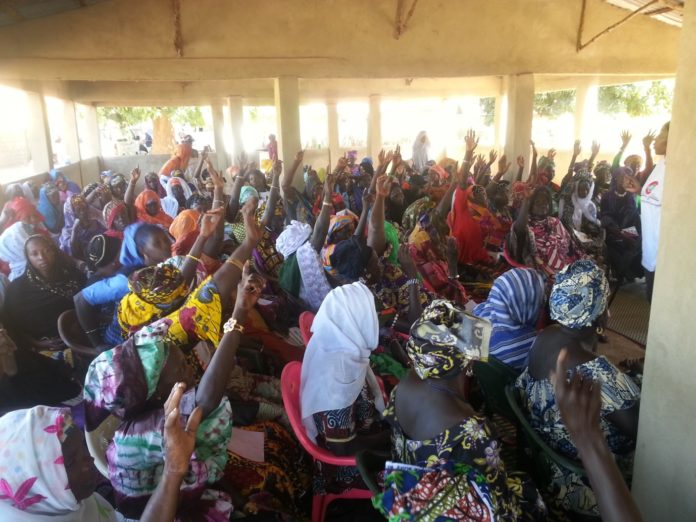By Nelson Manneh
Lamin Ceesay of Jarra Japineh village in the Lower River Region of the Gambia, said the death penalty should not be abolished in the proposed new Constitution, because it is a deterrent to the crime rate and killing of people without any genuine reasons.
Ceesay said this in response to questions posed by Commissioner Yankuba Manjang, on the death penalty in the 1997 Constitution, during the engagement of the people of Japineh with the CRC on the 3rd of December 2018.
‘‘The death penalty should not be eliminated, but the manner in which it is conducted, needs to be looked at,’’ he said. Ceesay said that during the previous Government, the death penalty was in the Constitution. But that people thought it was Government that was killing convicted people. He suggested that the proposed new Constitution should make provision for individuals to be jailed for the rest of their lives, when they commit such crimes,” he said. Ceesay contributed further that election dates should be determined by National Assembly Members, and not by the president. “The president is a politician. He may decide to choose a day that will not favour opposition parties in order to stay in power,” he said.
Commissioner Manjang further explained that in the 1997 Constitution, citizenship is captured under different categorizes; that it explains that citizenship can be acquired by birth, when either of or both parents of the person are Gambians; that the other is by naturalization; that it explains that when one spends fifteen years in the country and fulfils all his or her requirements of qualification, the person can become a citizen.
Manjang further added that there is citizenship by marriage, and asked the people to give their opinions and contributions on the category or categories of citizenship they want the proposed new Constitution to make provision for.
Commissioner Manjang further engaged the people on the issue of Diaspora Gambians and prisoner’s voting rights. “The prisoners should they vote or not?” he questioned.
Abba Sanneh of Japineh village said prisoners should vote. “They have the right to vote. Some of them are in prison for breaking the Law, but this should not prevent them from exercising their fundamental rights as citizens,” he said.
Sanneh contributed that the categorized citizenship is very difficult to deal with, especially the one dealing with those whose parents came to this country and had them born here. “These kinds of people do not know any other country than where they were born, and that is the Gambia. So, they really deserve to be citizens,” he told the CRC delegation.
Women and youth in their focal group discussions, looked at some important issues in the 1997 Constitution, ranging from Citizenship, the fate of prisoners and Diaspora Gambians, the death penalty, the appointment of Governors, the Auditor General, the Alkalos and Chiefs etc.
Women expressing themselves at a CRC constitutional review meeting in Japineh.
















